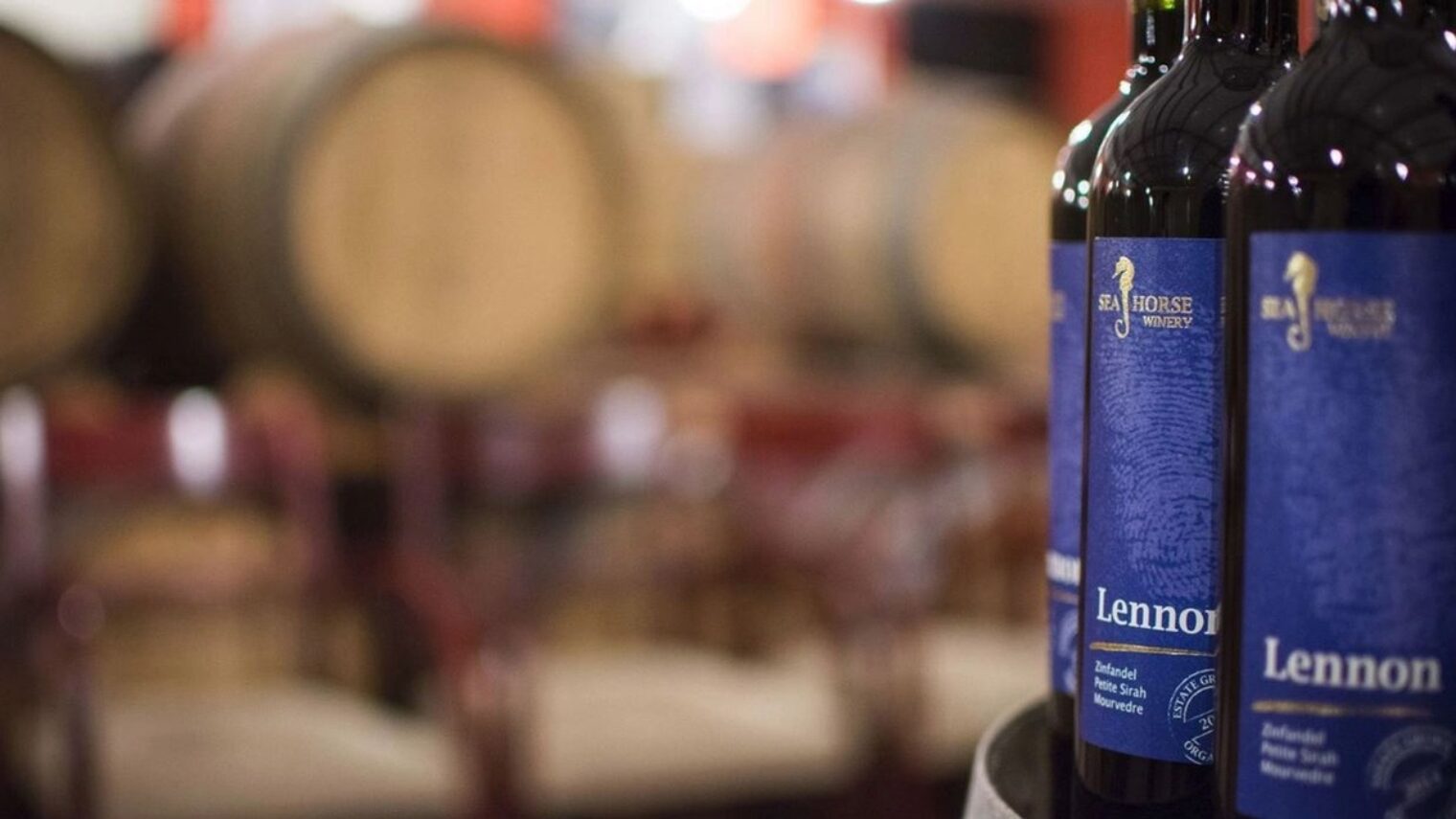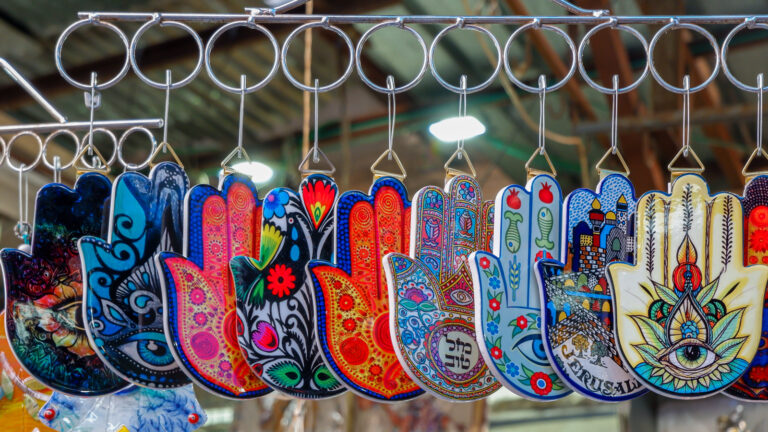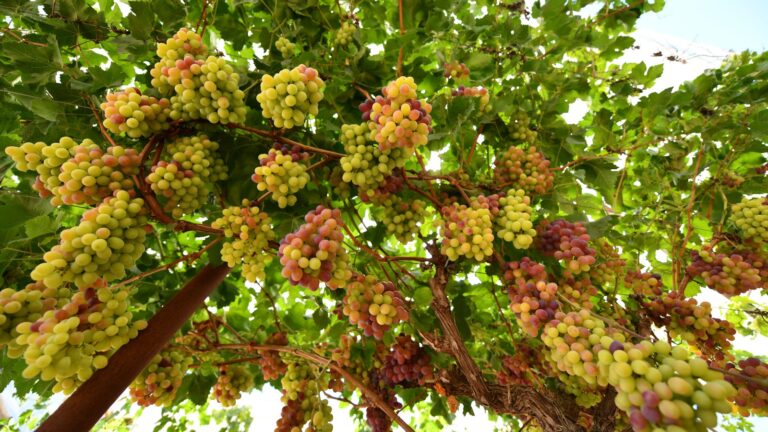On a cold Sunday morning, the small team behind the boutique Seahorse Winery in the Judean Hills sat down to drink coffee with ISRAEL21c.
Surrounded by orange walls, works of art and rows upon rows of wine aging in wooden barrels, they talked about grapes, sweat and what makes their wine so great.
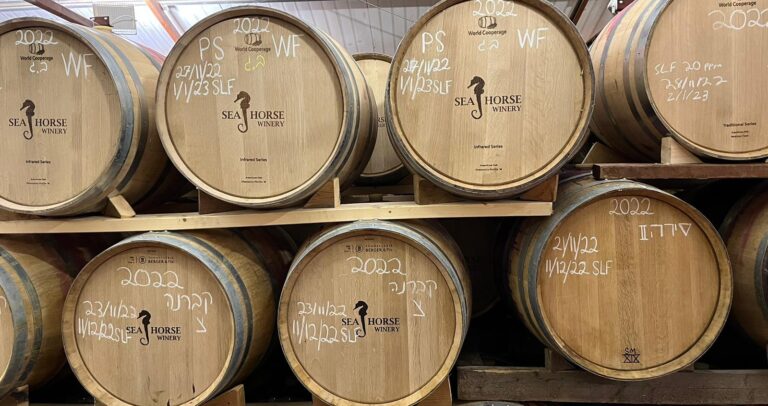
“I studied film and made short films,” starts off Zeev Dunia, the winery’s founder. “Life took me where it did, and in 1994 I decided to make a documentary about wine.”
With no previous knowledge of wine, Dunia set out to film the then-tiny wine industry over the course of a year, during which he met some of the leading names in the field. One of them was Ronnie James, the late celebrated winemaker of Tzora Vineyards.
“Following filming, I began engaging more and more with the subject. I’d come to Ronnie James and in addition to chatting and cooking and nattering, I came to volunteer and help out when I could.
“It took something like four or five years of low-key doing until I decided that this is what I want to do, and the first wine that we made was in 1999,” Dunia recalls. “We made that first wine, and I didn’t know what I was doing. Ronnie was telling me ‘Do this’ or ‘do that.’”
A year later, Dunia established the Seahorse Winery (Susson Yam, in Hebrew) in Bar Giora, a village outside Jerusalem. The name, he admits, has no clear connection to wine. The seahorse simply is “an amazing creature.”
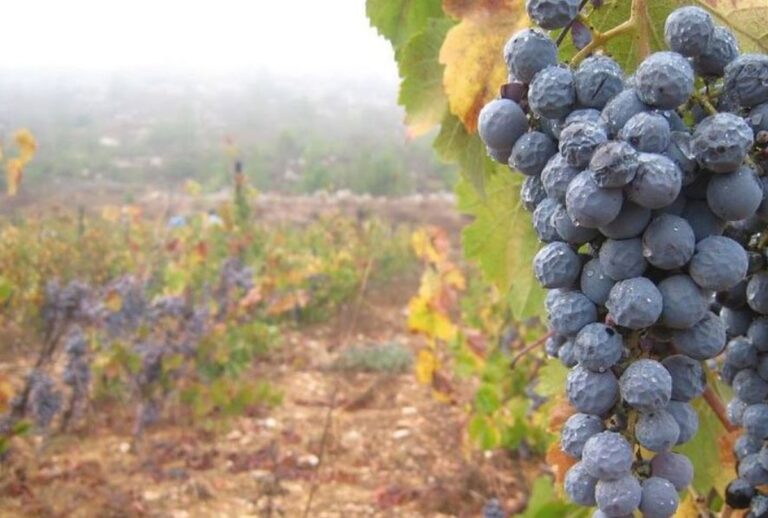
“We started off the first wine in 1999 with 600 bottles. In 2000 we made 900 bottles and now, on average, we make 50,000 bottles each year,” he says.
Unusual grape varieties
Seahorse grows Chenin Blanc, Syrah, Grenache, Zinfandel and Mourvedre grapes in its 7.5 acres of vineyards, the first of which were planted in 2000.
“The winery is characterized by its mostly unusual grape varieties,” explains winemaker Adar Ben Chelouche. “It’s been an organic winery since the very first day, back when weeds were considered a bad thing.
“The planting is very, very dense here – 2,200 vines per acre, compared to 880 vines per acre elsewhere in the country. This makes for a vine that’s situated in a competitive, crowded environment, which makes it strain itself,” he says.
“A French doctrine argues that a certain level of stress is beneficial for the vine,” adds Dunia. Vines that face harsher conditions grow fewer fruit, but far more concentrated in terms of flavor and color.
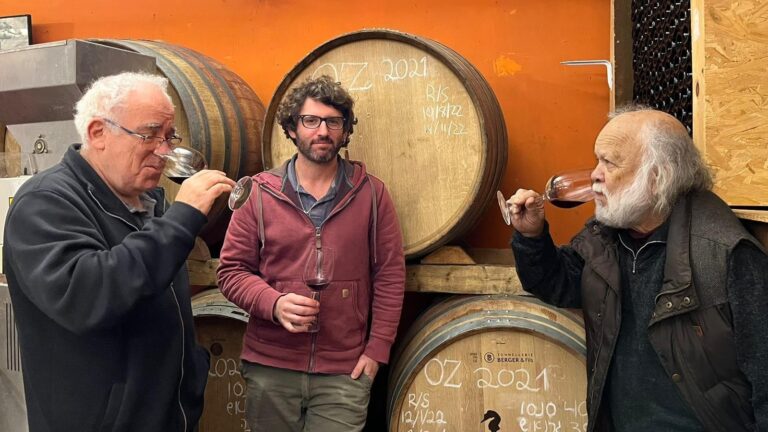
“All of the color and flavor of the grapes is located in the peel, and not in the juicy flesh. When the grapes are very small, around the size of green peas, the ratio between the juice and the peel is in favor of the peel,” Dunia explains.
“When it’s time to harvest, you end up getting a very, very concentrated grape juice. The concentration of flavoring is very high, and you get the ideal raw material.”
Dunia makes an analogy to salad veggies. “If you buy fresh, vital vegetables, you’ll get a wonderful salad. But if the vegetables are so-so, your salad will taste accordingly. It’s the same with wine. There’s no magic here. The magic is in good produce.”
Energy in a bottle
Seahorse wines are sold in wineshops and restaurants across Israel, as well as in some locations in Germany and Switzerland.
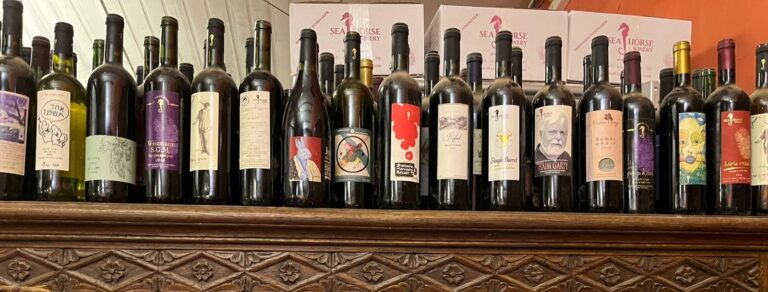
Some are named after famous artists – Lennon and Hemingway, for example – but now there’s also a Spinoza wine and the next one, Dunia reveals, might very well be called Labyrinth.
“One of the amazing things about wine is that it’s not just a product that you meet on the shelf. It has a lot to do with people, also in the sense that the wine’s character is influenced by the person who made it. If you’d give the same grapes to 10 different winemakers, you’d get 10 different wines,” says Dunia.
“I think that the common denominator of everyone who works here is dedication to the quality of the work and the end product. Our energy, both physical and mental, goes into each bottle. Whoever ends up buying that bottle inserts our energy into their body,” he says.
“On a philosophical level, it’s an act of love.”
Wine is like music
Dunia is no fan of labels on the back of the bottle describing the wine in a flowery way.
“I don’t get what they’re talking about and whether something is wrong when I can’t feel a whiff of cocoa. To me, it’s like music – a happy wine, a serious wine, a joyous wine. The grapes are like the notes. We get the grapes, these are the notes, and we need to play them and turn them into music.”
A musical metaphor is also the way winemaker Ben Chelouche chooses to describe what he best enjoys about his job.
“We have all kinds of tasks that we do. And when everything works and you get what you were aiming for, there’s a sense of satisfaction,” he says. “There’s a lot that we don’t know and all kinds of wild cards – yeast, bacteria, tannins – and conducting this choir is something truly special.”
Dunia particularly enjoys the feedback from the audience.
“The winery is in existence for 23 years because of a nucleus of good and loyal customers who love our wine,” he notes. “Without them we wouldn’t be here.”
He especially enjoys getting telephone calls, emails or WhatsApp messages from customers, “who on Friday night opened a Seahorse bottle and said it was amazing. To make people happy is not a bad job at all.”
For more information, click here.




